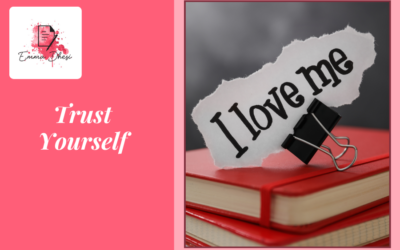What is the inner critic?
The inner critic is that horrid voice inside your mind that, if left unchecked, grows in mass and spreads, stealthily, through your being until it stops you from doing the simplest of things.
Some of you will have heard its voice when you look at your body in the mirror, when you want to embark on a new relationship or have to have an awkward conversation with someone.
Your inner critic will have been loud and proud if you ever had the temerity to ask for a pay rise and it positively screamed in your face when you decided to write your first novel.
You know the kind of thing it says:
- Who do you think you are to try writing?
- People will laugh at you.
- You haven’t got the talent for such an ambition.
- You can’t spell, how can you write a book?
- You’re too old.
- You’re too lazy.
- Remember what your teacher said about you? “Could try harder,” which was code for, “So untalented, don’t even try.”
I’ve been at the mercy of my inner critic for my whole life. I’ve spent much of my adult life convinced people don’t like me because I’m too loud, I speak my mind too freely, I always go too far and have the professional knack for saying the wrong thing at the wrong time.
The other thing it tells me not to do is ask questions out loud for fear of looking stupid!
My inner critic had a field day when I became a parent because this was a whole new realm in which it could tell me, every day, I was failing. What made this worse than simply not being liked, was that I was ruining the lives of my children by attempting to parent them.
And, of course, when I wrote my first novel, my inner critic was quick to caution me.
“It’s okay to write and publish your story,” it said. “Only don’t tell anyone about it because it’s so awful.”
“What about my five-star reviews?” I countered.
“They are pity stars.”
“Oh.”
You’re not alone
So you see, the inner critic exists in everybody’s psyche. It’s only because we don’t publicly share the cruel things we say to ourselves that we think we’re alone in this quagmire of self-loathing.
I’ve had so many emails from people who have expressed thanks and relief when I’ve shared the things writers feel about themselves. Someone who, in almost all areas of life, is confident in their abilities will crumble at the first word of self-criticism lobbied at their creative work. Even non-fiction writers who turn to fiction feel the wrath of their inner critic.
In this article, I’m going to share examples of how other writers have moved through their inner critic and how they’ve done it. But I can share up front that it is far simpler than you might expect and it’s been the biggest game-changer for me. Out of all the personal development work and therapy I’ve taken part in over the years, this has been the most impactful.
Ladies and gentlemen, I want to introduce you to your Nerds.
Meet the Nerds
Your Nerds are the personification of the different criticisms levied at you, by you.
One Nerd will criticise your weight and cellulite dimples.
Another will point out every little laughter line around your eyes (a friend of my mother’s made a vow to stop laughing to mitigate the damage. It didn’t last long. She is a woman who loves to laugh, hence the laughter lines!)
Another Nerd will remind you of how bad you are with money, so you might as well spend what little you do have.
Still another Nerd will tell you, you don’t have what it takes to go for your ideal job. You only have four out of the five skills needed, so best you wait until you have the fifth.
Still another Nerd will tell you not to share your writing in the critique group because, although it’s not happened to anyone else in the group, everyone will laugh at what you’ve written and confirm what you’ve always suspected – you’re a hack.
Do any of these sound familiar? I’m sure they do and I’ll bet you can add in a heap more that are specific to you and your Nerds.
Whilst Nerds are universal and tap into your need to be loved, valued and to feel safe, they are also unique to your own life experiences and the little things people have said to you and which have sunk into your psyche as fast as wriggling in quicksand.
One of my regular Nerds appears before I go live on Facebook. It reminds me I have nothing of value or interest to say, so why am I wasting people’s time?
Before, that voice would have stopped me immediately, but now I tell my Nerd to shut up and I hit “go live”. I’m always thankful I did.
Playing Big
Tara Mohr, in her book Playing Big, talks about the eleven types of voice your inner critic has. I would describe them as your eleven Nerds and they all pop up at different times. Some more regularly than others. Of the eleven, these are the ones most relevant to your writing life:
You aren’t ready yet
This shows up for you as needing to read one more craft book, attend another free webinar, one more weekend workshop or perhaps even a new degree in creative writing.
What I’ve noticed with many of my coaching clients is that they have the writing skills but don’t yet have the self-belief.
The 1-2 punch
Mohr explains this as “The inner critic starts mumbling to you about how everyone else in the room has it more together than you do. Then the critic follows up with ‘get a grip, get some perspective’ or, ‘What is wrong with you? Other people are confident and relaxed … just look over there, at Susan.” In other words, the critic first attacks you with critical thoughts, then shames you for having those thoughts. That is the 1-2 punch.’
For you, your inner critic might ask why is it so easy for everyone else to share their work in the group? It follows up with stop being a wimp, share your pages and get feedback. Look at Susan, she’s doing it.
Can you see how prohibitive your inner critic is? Do you recognise it in your own thinking? Take a moment to write down the most common criticism you levy at yourself when it comes to your writing.
Later, when you go to do your writing, note down what your inner critic says then. Take a moment to reflect that this is your Nerds. Nerds that will always sit on your shoulder, that are part of you and are there, believe it or not, to protect you.
Hardwired for criticism
When I say hardwired for criticism, what I really mean is hardwired for safety. Human beings are social creatures, and not just because we like a good chat but because there’s safety in numbers.
We may be at the top of the food chain but, individually, we are one of the weakest species out there. We’re not the fastest runners, we don’t have sharp teeth, thick hides, razor-sharp claws, venomous poison or the muscle mass to squeeze the life out of other predators. Nor do we have wings to fly to safety.
Instead, we have tools, forward planning and each other. That’s how we became top dog. So, back in the cave days, it was imperative we stick together and follow the group thing.
If we were to take a risk or do something unexpected or that didn’t fit with the group, we would have run the risk of being ostracised and kicked out of the clan.
If we were kicked out of the clan, not only were we physically vulnerable, but emotionally and socially vulnerable, and that’s not good for a human.
Even though, as a modern human, you are not under any threat while sitting at your desk; you are hardwired to avoid any new thinking in case you do something foolish and are ostracised by your clan.
But why does your inner critic need to be so mean?
Because, if it wasn’t, you’d ignore it. You’d rationalise with your inner critic and go ahead, anyway.
The body has other ways of being mean so it can protect you. For example, if you eat something poisonous or that’s way past its sell date, your digestive system soon lets you know. You vomit, perhaps experience diarrhoea, and you definitely have painful stomach cramps.
This is your body being horrible to you so you learn for next time. Don’t eat the poisonous berry or the meat that has gone off.
Your inner critic is the psychological equivalent.
Now you know why you have an inner critic, that Nerds are a universal condition of being human and that those Nerds will never disappear, what practical steps can you take to lessen their impact?
Make friends with your Nerds
Think of your Nerds as a personality, a character who shadows you through life, making special appearances when you least want them.
Just like you, that Nerd wants to feel seen, heard and acknowledged. When it next speaks up, let your Nerd know that you’ve heard it, that you know it’s trying to protect you but you’re going to do it anyway.
If the Nerd continues to shout, tell it again, “I hear you, Nerd, and I thank you, but I’m going to write this scene. We can discuss it later”.
This has been one of the most powerful actions for me. As soon as I acknowledge that Nerd and let it know it’s not being ignored, its temper dies down. Instead, whilst it’s still worried, it’s also pacified enough to let me write.
A teacher of mine goes a step further with her Nerd. She sees it as a banana sitting on her shoulder who she feeds from time to time to keep it quiet!
How do you see your Nerd? It will be as unique as you.
Final Thoughts: Your inner critic
The more you try to ignore your inner critic or pretend it’s not there, the stronger it’s going to get. If you’ve let it get to the stage where it shouts you down whenever you try anything, then it’s going to be a longer process to make it feel appreciated.
So, don’t give up, keep going, keep talking to your Nerds, personify them if you need to like my teacher does but find a way of speaking to them, it, he or she, in a way, and with the language, that is most calming.
Don’t give up with it because if the voices in your head are screaming at you, it’s going to take a while to calm them down. Think of a toddler in a full swing tantrum. Sometimes you’ve just got to let them ride it out and when they’ve calmed down, then you can talk to them and help them learn for next time. Your Nerd is the same.

Emma Dhesi
Emma Dhesi is author mindset coach and bestseller author who helps writers let go of perfectionism, self-doubt and writer’s block through her signature programme, Unlock Your Creative Block.
She is the host of the YouTube Channel, Emma Dhesi, where she interviews debut and experienced authors alike.
Through her 1:1 coaching programme, Emma helps new authors start and finish their first novel.
Emma provides personal written feedback on their pages and guides them through the emotional rollercoaster that is writing a novel!
If this article was useful, you’ll love:





0 Comments